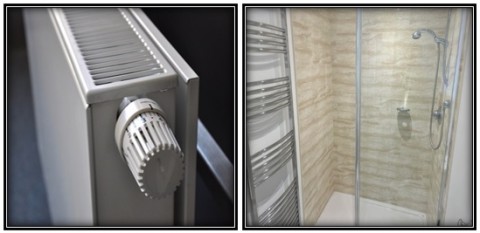So, what’s the business transfer market like at this time?
This is a question we are constantly being asked, especially by business owners who have been contemplating selling their businesses. The short answer is : It’s a bit like the ‘curate’s egg’ – good in parts. To be more precise, there are more prospective buyers than we have ever known currently looking for quality businesses in the market sectors in which we specialise – industrial, commercial and business services. This is certainly not the case when it comes to businesses, for example, in the retail and hospitality sectors!
In the current market the emphasis from a buyer’s perspective is much more aligned to the level of profit and return on investment than it is to such as ‘lifestyle’ or other requirements. More and more people are looking for businesses which will provide them with higher personal incomes than they are currently able to achieve as opposed to those who are simply looking for a change to their working lives together with the prospect of having a business with good residential accommodation in a pleasant part of the country. So, for the majority of people it’s not a case of a “roses around the door” in a property with suitable living accommodation in a nice location which happens to have a business attached, it’s more likely to be much larger businesses making really good money but which are often found on industrial or trading estates, business parks or operated from a fleet of vehicles, etc. However, it should be noted that certain types of very profitable businesses are operated from the owners’ homes and often without the need for staff, stock or high overheads. Such businesses are currently attracting a great deal of interest, not only because they can be extremely profitable and easily managed, but also because they can be relocated to the purchasers’ homes, thus enabling people to acquire really good businesses without having to up sticks!
So, who are all of these prospective buyers, where are they coming from and how are they funding business purchases?
The truth of the matter is that it’s very much a mixed bag. Buyers have been appearing in the market in many different guises and come from differing backgrounds and situations. Their requirements vary significantly as do their financial positions.
The ‘usual suspects’ can always be found milling around the market – serial entrepreneurs, people re-entering the market having sold their previous business a year or two ago, others looking to add businesses to their existing portfolios, etc. There are also large numbers of companies looking to expand their existing businesses via acquisitions. In addition, the numbers of people who have recently been made redundant (with the likelihood of many others due to experience the same fate as this year evolves) and who have decided to buy a business rather than seek alternative employment is probably at an all time high. These people – who want to be in charge of their own destinies rather than again run the risk of being discarded by employers – are often in their middle age, have cleared their mortgages and, with their children having left home, are not short of a bob or two. They also often have skills and experience that will stand them in good stead when it comes to taking over established businesses where perhaps such skills will be of benefit in the further development of those businesses.
Then there is another and altogether very different and relatively new group of prospective buyers. These are people who, prior to the financial crisis were able to live quite comfortably off the interest on their capital but who can no longer do so! Their lifestyles have been diminished by lack of income and, not wanting to spend their capital, they are turning to the business transfer market as opposed to much higher risk alternative investments. Usually, these are retired people and they are not, of course, looking for businesses which they intend to operate themselves. On the contrary, they are seeking businesses which are either already being ‘managed’ or are readily capable of being managed for a new owner. In the latter case, there are often opportunities for such investors to engage members of their own families or friends to run the businesses for them. This creates dual benefits for the new owner – an opportunity for much higher returns on their capital than is currently the case for them and also providing employment for people they know and trust.
Finally, there has been a significant increase in the numbers of people returning to The U.K. from abroad who are buying a business as part of their re-settlement here.
We, at Beardsley Theobalds, have found that, of late, a considerable number of people buying businesses are not turning to the banks for conventional funding. Among the groups of buyers described above, plenty of private capital is available for business purchases and this is being used more and more in the current climate. Having said that, banks have been slowly but surely increasing lending levels and there is little doubt that, as has always been the case, they will lend (on sensible terms) to a quality applicant who wants to buy a quality business. In fact, given that deposit percentages for commercial finance are now little different than was the case prior to the last major recession and, with interest rates now only fractionally above an all time low, borrowers are unusually finding themselves in a position where they can clear their loans much more quickly than they were able to previously – say 5 to 7 years as opposed to 10 years. Therefore, one might be tempted to ask “Has there ever been a better time to buy a business?”.
So, there are plenty of buyers and a lot of cash available for the purchase of quality businesses. The only missing part of the jigsaw is the availability of sufficient numbers of quality businesses for them to buy! However, this is good news for those business owners who are looking to sell because this dilemma has led to higher prices being achieved and quicker transactions (given the level of buyer competition for each quality business which is offered for sale).
Roger Mundy, Managing Director, Beardsley Theobalds

